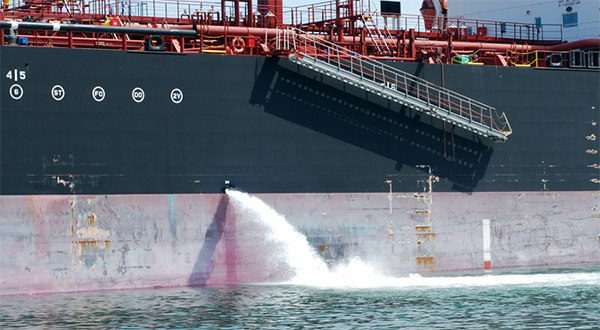Ballast water testing industry group Global TestNet issued a statement addressing stakeholders’ concerns regarding the closure of two test facility members of the Global TestNet, Maritime Environment Resource Center (MERC) and DHI Singapore.
MERC decided to halt its Type Approval Certification testing of BWMSs, because of a lack in an appropriate standardized approach and sufficient oversight in the implementation of ballast water regulations, facts that are undermining the goal of national and international policies to prevent the introduction of environmentally and economically destructive invasive species.
Stakeholders are concerned about whether there is enough capacity to process certification tests in a timely manner, and whether the testing protocols are efficient.
Global TestNet recently welcomed new members into its organization, to help maintain testing capacity globally.
“The Global TestNet continues its commitment to analyse and address concerns about the BWMS testing protocols and their implementation. The Global TestNet is actively improving testing by being a forum for discussion and sharing of experiences and data, promoting comparable and accurate test results,” Global TestNet said.
Feedback from compliance checks especially during the IMO’s Experience Building Phase, will be crucial to support Global TestNet progress.
According to its statement, Global TestNet aims: “To promote comparable and accurate test results on the performance of ships’ ballast water and biofouling management systems for certification and protection of the natural environment and biological diversity, in particular but not exclusively by facilitating an open exchange of information, transparency in methodologies and advancing the science of testing, for the public benefit.”
Furthermore, experts from ballast water testing facilities from around the world gathered at IMarEST headquarters in London, on 1-2 February to discuss the science behind BWM. The meeting was part of the Global TestNet, a forum of organizations involved in standardization, transparency and openness of land-based and shipboard testing for the certification of BWMS.
A key issue on the agenda was biofouling also to be addressed by Global TestNet. IMO’s Antoine Blonce gave a presentation on the subject, introducing IMO’s new GloFouling project, which is building on the Organization’s work to help protect marine ecosystems by dealing with potentially invasive species.
At the moment, eight testing facilities are working, which are GSI, NIOZ, IMARES, NIVA, DHI Denmark, KOMERI, Golden Bear and MEA-NL. From these testing facilities, the last five are conducting most of the testing worldwide.





























































